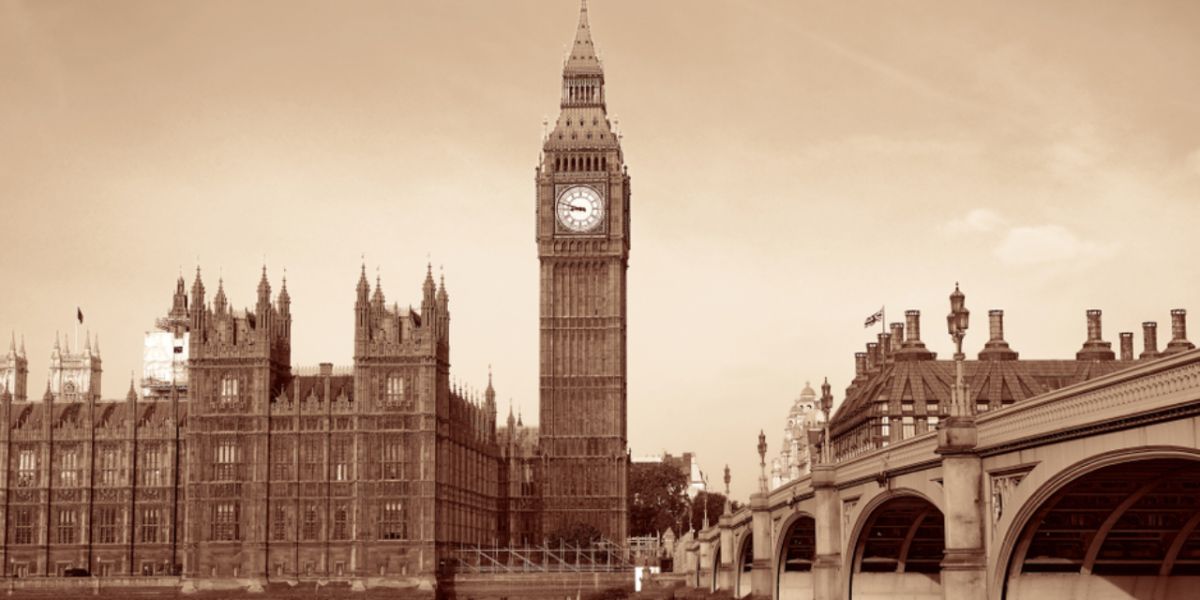
England continues to be one of the world's most popular destinations for tourists and expats alike. The diverse culture, stunning landscapes and world-class attractions make it an appealing choice for travellers. A strong economy also provides various opportunities for people with different goals and backgrounds. But what are the current requirements for travelling to England, and the UK overall?
UK international arrivals
England remains one of the top ten most visited tourist destinations globally, welcoming over 30 million international visitors annually.
New Electronic Travel Authorisation (ETA) requirements in England
A significant change has been introduced to UK entry requirements in 2025. Since January, US, Canadian and many non-European passport holders must obtain an Electronic Travel Authorisation (ETA) to enter or transit through the UK if they do not possess a valid UK visa. And since April, eligible citizens from European countries also require an ETA to travel to Britain and Northern Ireland.
An ETA is a digital permission to travel - it is not a visa or a tax and does not permit entry into the UK - instead, it authorises a person to travel to the UK.
An ETA will allow you to stay for up to six months for:
- Tourism,
- Short-term study,
- Family visits,
- Business.
It will also allow you to come for three months on the Creative Worker visa concession, come to the UK for a permitted paid engagement or transit through a UK airport if you pass through border control.
Good to know:
You do not need an ETA if you already have a visa, an exempt vignette or have a British or Irish passport.
The new ETA system represents the UK's move towards a fully digital border system. Applications can be made online through the official government website, and the process is designed to be straightforward and efficient.
It costs £16 to apply online or through the UK ETA app. However, you cannot get a refund after you apply. To apply, you'll need the passport you'll travel with, an email address and a form of payment. When you apply, you'll need to upload or take photos of the face of the person applying.
Entry conditions in England
The landscape for EU and EEA citizens has changed in recent years. Currently, EU, EEA and Swiss citizens (except Irish citizens) need an ETA to travel to England, or elsewhere in the UK, without a visa. However, under the country's new points-based immigration system, you can continue to visit the UK without applying for a visa once you have your ETA.
For EEA and EU citizens
As mentioned above, EU, EEA and Swiss citizens can still travel to the UK for holidays or short business trips for up to six months, but they now need to obtain an ETA beforehand. The automatic ePassport gates remain available for these travellers to use when crossing the border.
For EU citizens who want to work in England, the situation has changed considerably. EU citizens generally need a visa to work in the country unless they have settled or pre-settled status under the EU Settlement Scheme. The most common work visas include the Skilled Worker visa, Health and Care visa, Global Talent visa and the Innovator-Founder visa.
To be eligible for the Skilled Worker visa, you must:
- Demonstrate you have a job offer from a Home Office-licensed sponsor at the required skill level.
- Be paid the relevant minimum salary threshold.
Students from EU, EEA and Swiss countries must apply for a Student visa if they have a study offer from a Home Office-licensed education institution and can prove they have sufficient finances to support themselves during their studies and pay tuition fees. Then, after graduating, students can apply for a Graduate visa to remain in the UK for at least two years.
Good to know:
These rules do not apply to Irish citizens, who maintain special status and can continue to travel and work in the UK freely.
For non-EEA and non-EU citizens
For travellers from outside the EEA or EU, the requirements depend on their nationality. Many countries that were previously visa-exempt now need to obtain an ETA instead.
As explained above, all US, Canadian, and many non-European passport holders must obtain an Electronic Travel Authorisation (ETA) to enter or transit through the UK if they don't already have a UK visa.
Citizens of countries that previously required a visa to enter England and the rest of the UK will continue to need a Visitor's visa, applied for online or at the British embassy or consulate in their home country. You can apply for a Visitor's visa up to three months before your intended travel date, and it should typically be processed within three weeks if you meet the requirements.
The approval and duration of stay can vary depending on factors like your country of origin, but Visitor visas generally allow stays of up to six months.
Working in England
During your stay on a Visitor's visa, you cannot undertake any paid or unpaid job in the UK. However, you can enroll in courses that do not exceed six months.
Anyone wanting to work in the UK must obtain the appropriate work visa before starting employment.
Good to know:
The UK is not part of the Schengen area. You may travel to other European countries with a Schengen visa, but you won't be able to use it when entering England or any other part of the UK. You'll need either a valid UK visa or ETA issued by British authorities.
Formalities for entering England
Before travelling, make sure you have all the necessary documentation. This means either a valid visa, an ETA (if needed for your nationality), or relevant immigration status.
Your passport should be valid for the duration of your stay, and while not always mandatory, having at least six months' validity beyond your entry date is recommended.
Once you've successfully entered the country with valid documents, you can travel freely between England and the rest of the UK, which includes Wales, Scotland and Northern Ireland.
Finally, the UK's new digital border system aims to make entry more streamlined while maintaining security, so ensure you check the latest requirements before your trip as the system continues to evolve.
Post-entry requirements in England
For most visitors to England and the UK, no additional formalities are required after successful entry through immigration control.
Standard tourists and short-term visitors can move freely throughout the country without further registration or reporting obligations.
That said, expats moving here are required by law to register their place of residence with their local authority in the area they settle. Registering your address will help you to access public services like banks, healthcare and more. Doing so also makes sure that you're added to the electoral roll and that you're counted in the area's population statistics.
Important:
You will need to update your address with your local council every time you move within England.
We do our best to provide accurate and up to date information. However, if you have noticed any inaccuracies in this article, please let us know in the comments section below.








